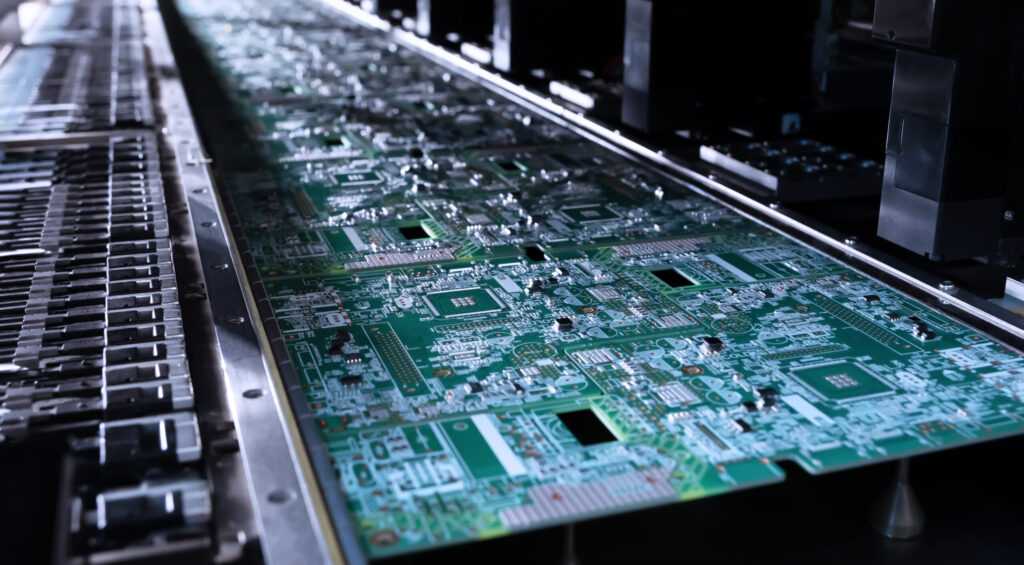What are Audio isolation feet? Overview and Effects

Audio isolation feet are vibration-proof materials that serve to block sound vibrations.
Additionally, it also has the ability to absorb the self-induced vibrations of audio equipment.
For audio enthusiasts who are particular about sound, listening to good music in the best environment is probably one of the most important things in their lives.
Many are particular about audio accessories in order to enjoy high-quality analog sound.
There are a number of different types of audio accessories, and among them, the audio isolation feet are considered easy-to-use and effective.
Below, we will explain what audio isolation feet are, as well as the types, effects, etc.
Table of contents [close]
How to use audio isolation feet?
Audio isolation feet are easy to use – simply place them under the speakers or record player.
Used under speakers, they reduce vibrations with minimal impact on the surroundings, while under record players, they prevent speaker vibrations from reaching the player.
What are the effects?
Audio isolation feet have the effect of suppressing sound vibration and improving sound quality.
Sound is transmitted through the air as a vibration.
Vibrations reach our ears through a variety of things.
Sound is heard from the speakers because the air is vibrating.
The speaker produces sound by vibrating the diaphragm.
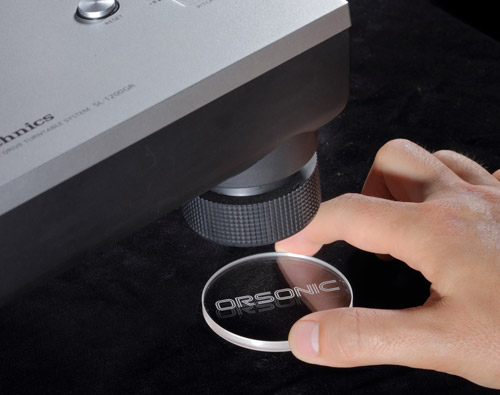
The stand or floor the speakers are placed on can also act like a diaphragm, creating sound when vibration is transmitted through them.
Noise is generated by the overlap of the original sound from the speakers and the sound from the stand or floor, resulting in poor sound quality.
Therefore, suppressing vibrations leads to improved sound quality.
Additionally, placing audio isolation feet with a different resonant frequency between the speaker and the contact surface provides separation, and as a result, vibration caused by resonance is reduced and sound quality improved.
Resonance is the generation of natural vibration (the frequency that an object originally has) by applying external force to a stationary object.
There are some music enthusiasts who purposely resonate the speaker’s contact surface (audio isolation feets, stand, or floor) in order to create their own sound, but otherwise, resonance should typically not occur.
If you want to hear music with good sound, it is important to prevent vibration at the speaker contact surface and to cut noise (vibration) from the audible range to the low frequencies.
Generally speaking, the lower the frequency, the more difficult it is to prevent vibration.
Low frequency sound is hard to hear with human ears, but it is one of the causes of poor sound quality.
Choosing audio isolation feet that can cut the noise (vibration) from the audible range to the low frequencies is an easy way to listen to music with good sound.
Audio isolation feet are effective not only for speakers, but also for preamps, amps, players, etc.
They are a useful and convenient audio accessory for any audio device.
Sound varies depending on shape and material
There are various types of audio isolation feet, but the sound varies depending on their shape and material.
Shapes include cylinder, cube, and spike shapes.
The smaller the contact surface, the smaller the effect on the speaker stand.
Although cylindrical audio isolation feet have a large contact surface, they are suitable for lightweight speakers and players, and block vibrations to the stand.
Cube-shaped audio isolation feet give sound a soft and deep quality.
Like cylindrical ones, they have a large contact surface, but vibrations are absorbed by the softness of the material, making them ideal for listening to calm music.
Spike-shaped audio isolation feet have a small contact surface, and the vibration of the speakers is not easily transmitted to the floor.
They are perfect for those looking to achieve a clear sound quality.
Materials used for audio isolation feet include rubber, wood, and metal, and the characteristics of the material itself affects the sound quality.
Rubber tends to soften the sound quality and make the bass sound beautiful.
It is ideal for those who listen to music where the bass is important, such as dance music.
Wood achieves a warm and deep sound.
It absorbs vibration better than metal, though it is best to avoid anything too soft, since it can absorb too much and worsen the sound quality. It's a perfect material for listening to warm and calm music such as bossa nova.
Metal tends to make a beautiful, clear sound with a clean high register. It is ideal for listening to instrumental music because it allows you to hear every detail.
ORSONIC audio isolation feet
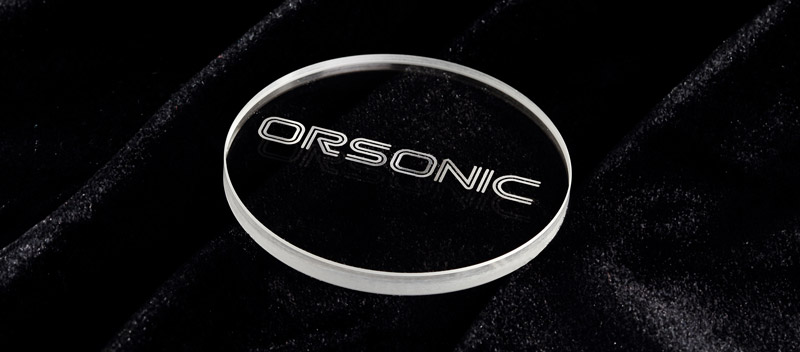
Orbray makes and sells audio isolation feet under our ORSONIC brand.
Using a unique approach, we have developed an excellent, first-of-its-kind audio isolation feet.
Carefully selected materials for audio isolation feet
Our material of choice is high-purity, single crystal sapphire, which has excellent strength and hardness, and an ordered crystal structure.
It provides more tightness in the low registers than rubber, more detailed sound than metal, and a clear middle range.
With sapphire, all the best parts of other audio isolation feet materials are brought together.
High-precision processing technologies
Our company has the technology and know-how to process strong materials like sapphire.
The high-precision polishing of the surface means our audio isolation feet can be installed so that they stick to the contact surface of the speaker or turntable, resulting in an unparalleled, high-quality sound.
With attention paid to both performance and appearance, our beautiful gemstone audio isolation feet will create a musical space you have never experienced before.
Try them out and hear the difference!
What are Audio isolation feet? - Summary
Audio isolation feet suppress unwanted vibration to help achieve the highest-quality sound.
Our ORSONIC audio isolation feet are perfect for audio enthusiasts to create the best environment to enjoy their favorite music.
-
Cleavage of Jewel

-
Production of Sapphire
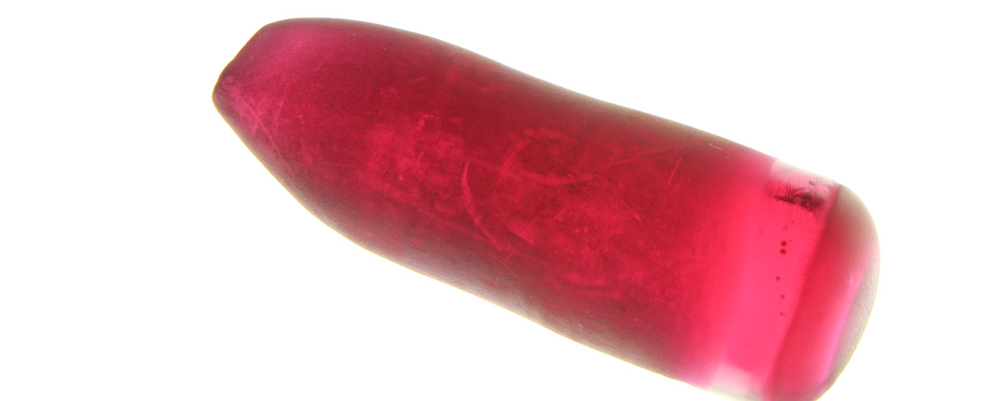
-
Crystal of Jewel

-
Summary of “Grinding” and “Polishing”A brief introduction to these processing technologies and how they are used.
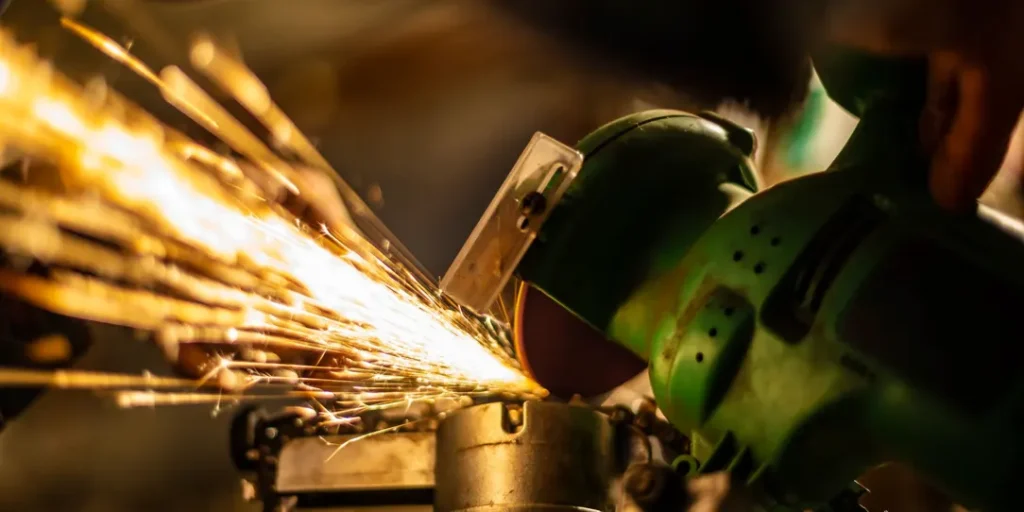
-
Introduction to winding nozzles: an essential component of the motor coil winding process
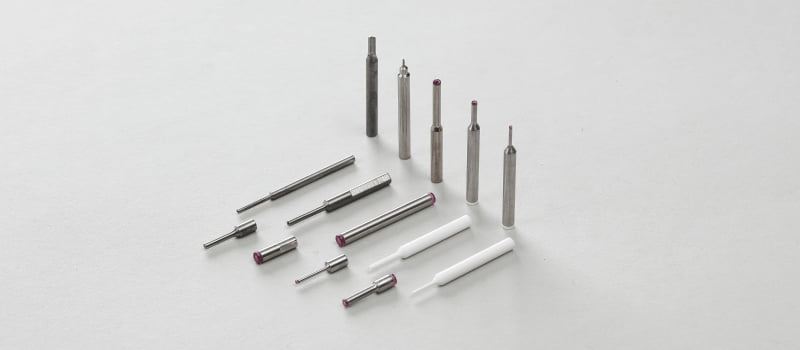
-
Introduction to suction nozzles and collets
